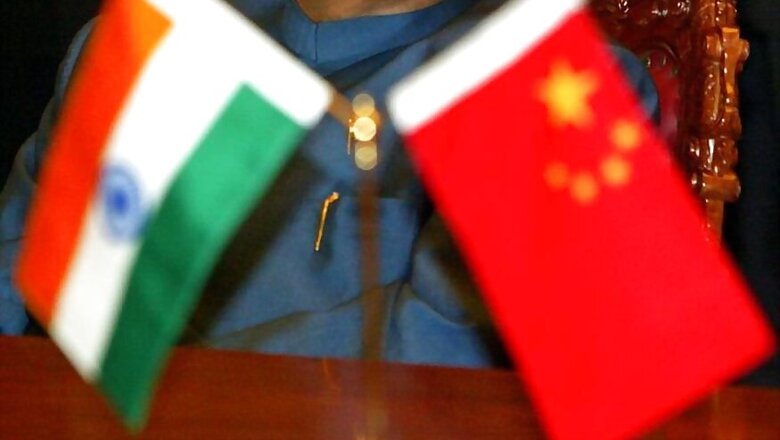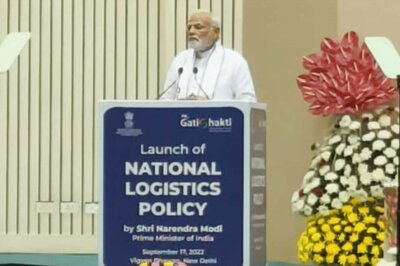
views
Beijing: Dialogue between India and China on critical issues has not kept pace with developments leading to gaps filled by innuendo, a top Indian diplomat said as think-tanks of the two countries deliberated on Saturday to stem growing differences on a host of issues straining bilateral ties.
"While we are neighbours and friends, dialogue among us has not quite kept pace with the fast-paced developments of the last half-century," Indian Ambassador to China Vijay Gokhale said at the 2nd India-China think tank meeting.
As the two nations grow rapidly and become the pillars of Asian, if not global, growth and stability, the need for better understanding each other's motivations, concerns and strategic priorities grows even stronger, he said.
A sustained dialogue is a pre-requisite to the "deeply enmeshed relationship", he said.
"We have seen that gaps in understanding due to lack of dialogue are quickly filled by innuendo. Yet, we have also seen in this very relationship that both sides have the wisdom and maturity to confront and solve problems whenever we have engaged each other in honest dialogue," Gokhale said.
A delegation led by the Indian Council of World Affairs (ICWA) Director-General Ambassador Nalin Surie on Saturday held the 2nd India-China Think-Tanks Forum organised by the ICWA and Chinese Academy of Social Sciences (CASS).
The delegation, which included former Indian Ambassador to China Ashok Kantha, consisted of Indian scholars and experts on regional, economic, and strategic issues from 11 institutions in India.
They deliberated on strategic communication, bilateral trade and investment cooperation, science and technology and people-to-people exchanges.
After the talks here, the delegation will proceed to southern Chinese cities of Guangzhou and Shenzhen for additional exchanges with think-tanks there and site-visits.
The Forum is a bilateral platform established by an MOU during the visit of Prime Minister Narendra Modi to China in 2015. The first meeting was held in New Delhi last year.
Speaking at the Forum, Surie, who was also former Indian Ambassador to China, said, "we have variety of reasons that requires us to cooperate and collaborate other than enter into needless competition and rivalry".
"We have differences. However, it is necessary to ensure that they do not become disputes but instead converted into opportunities for even greater cooperation," he said.
Referring to a recent meeting between Modi and Chinese President Xi Jinping, Surie said, "our leaders are of the opinion that we need to address each other's concerns very seriously. We need to take heed of this in our think tank community also."
For its part, China has fielded its top think-tanks to deliberate with their Indian counterparts to look for a way out growing differences between the two countries, specially on the USD 50 billion China-Pakistan Economic Corridor, China blocking India's membership bid in the Nuclear Suppliers Group as well as UN ban on JeM leader Masood Azhar.
Those from the Chinese side who took part in the deliberations included Kong Xuanyou, Assistant Minister for Foreign Affairs, Prof. Wang Weiguang, President of CASS and Prof. Hu Shisheng, the director of the Institute of South and Southeast Asian and Oceania Studies of the China Institutes of Contemporary International Relations (CICIR).



















Comments
0 comment